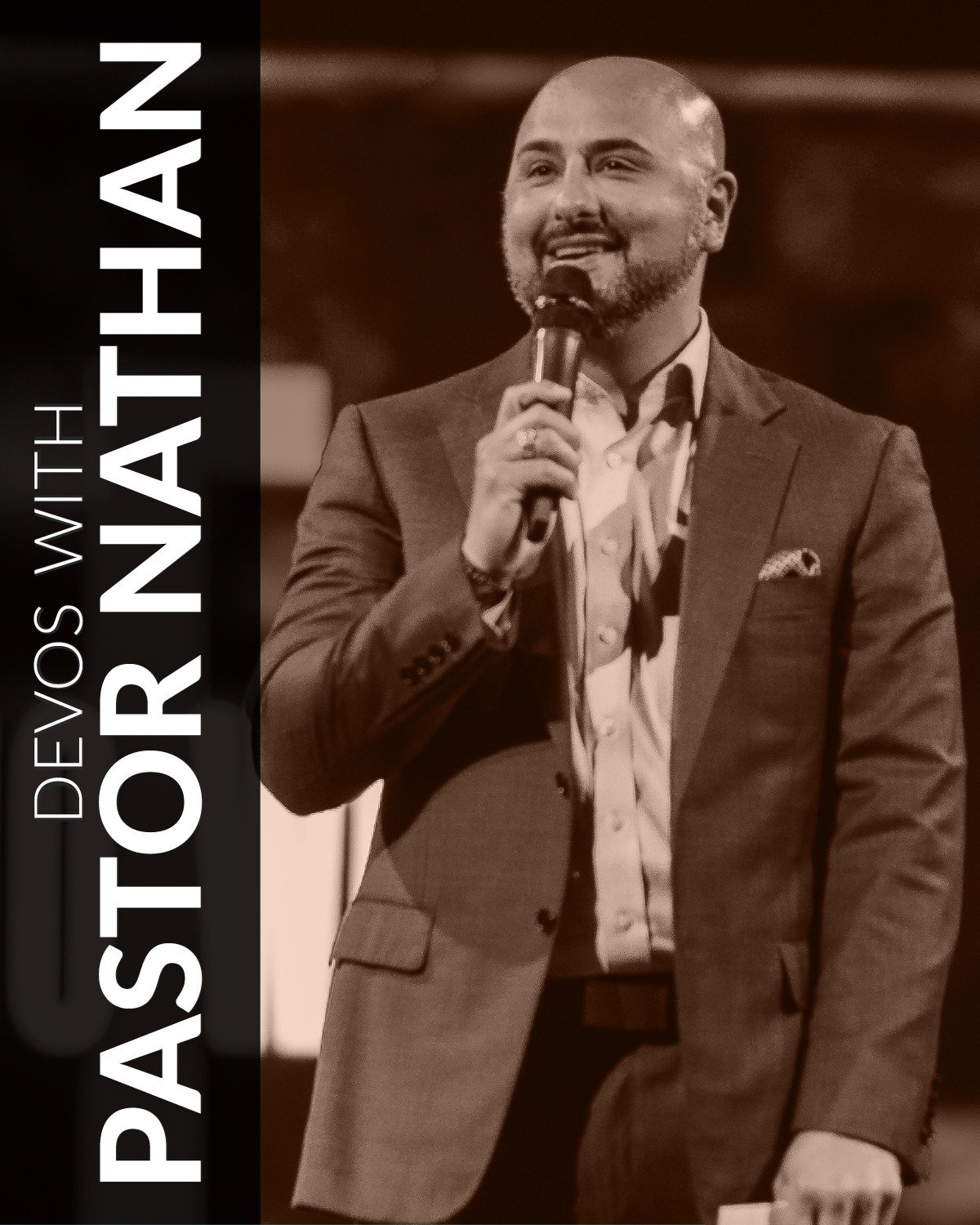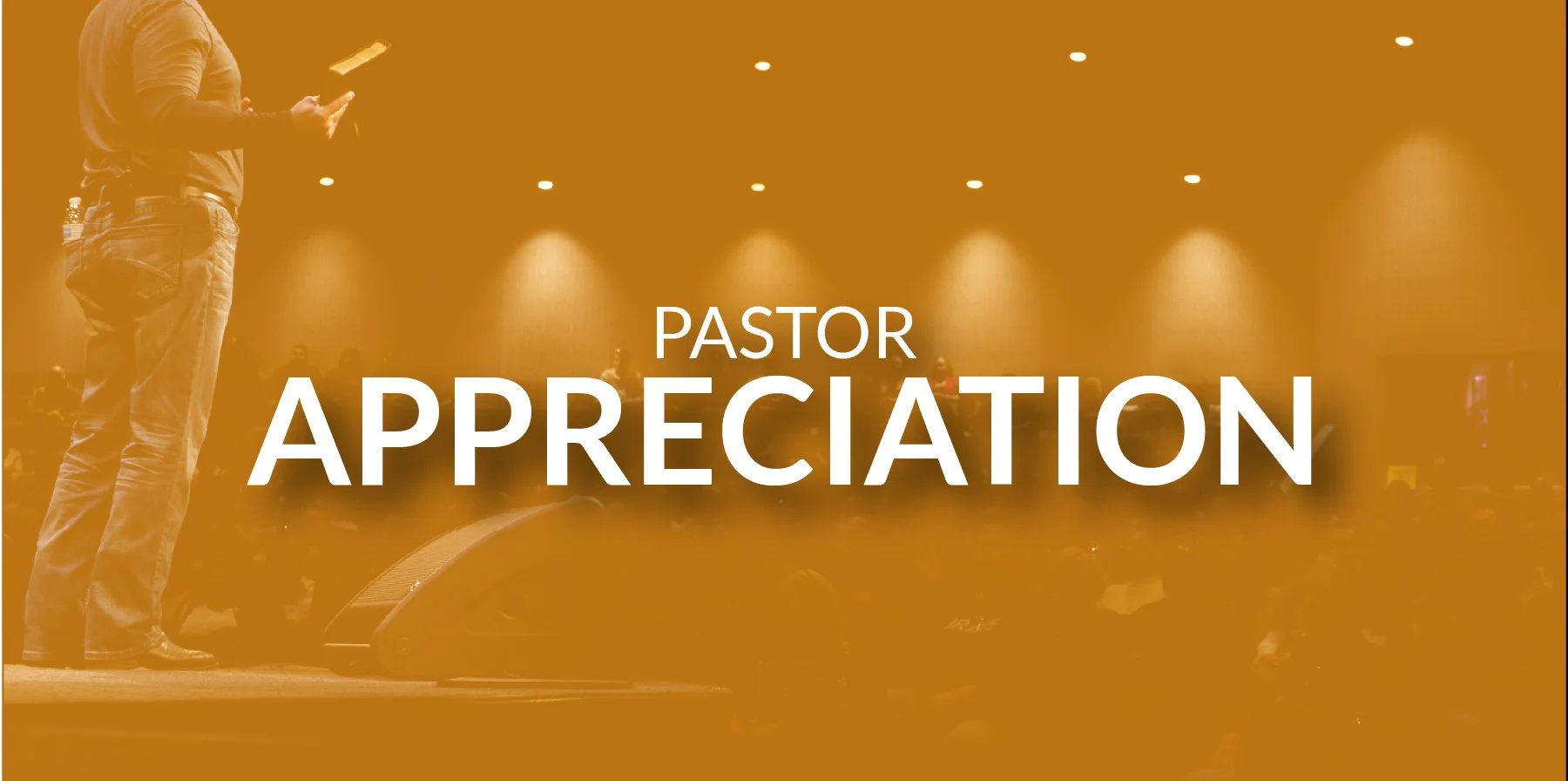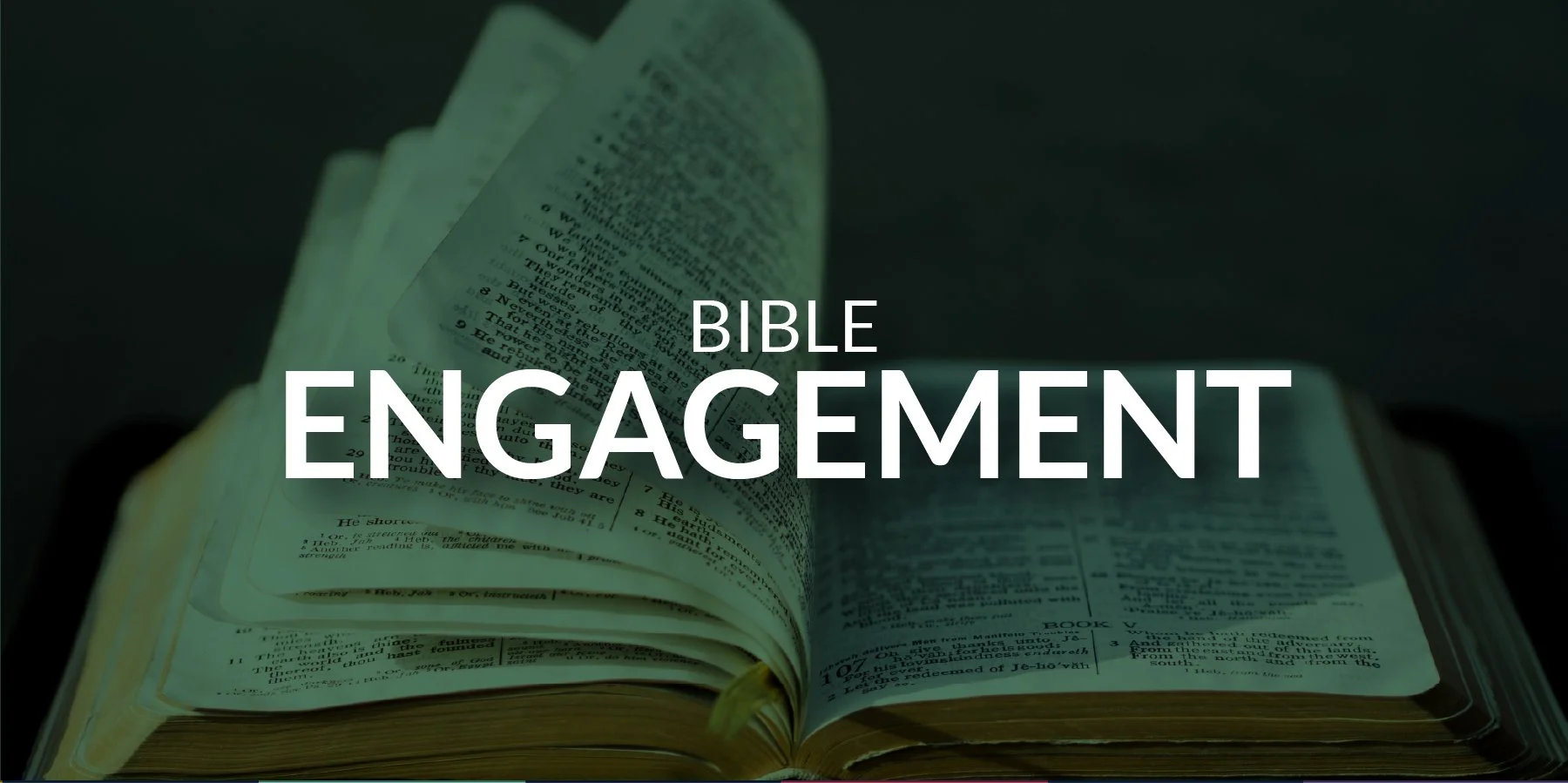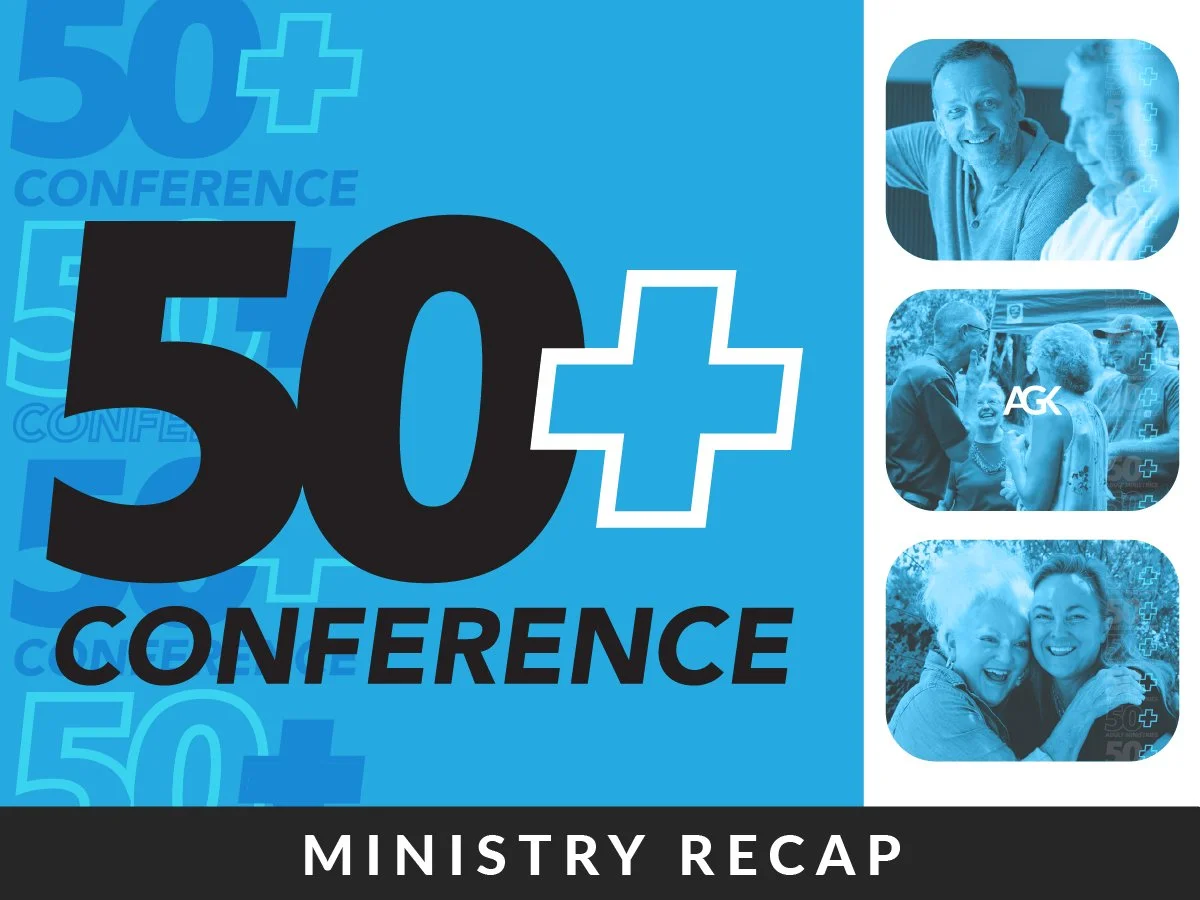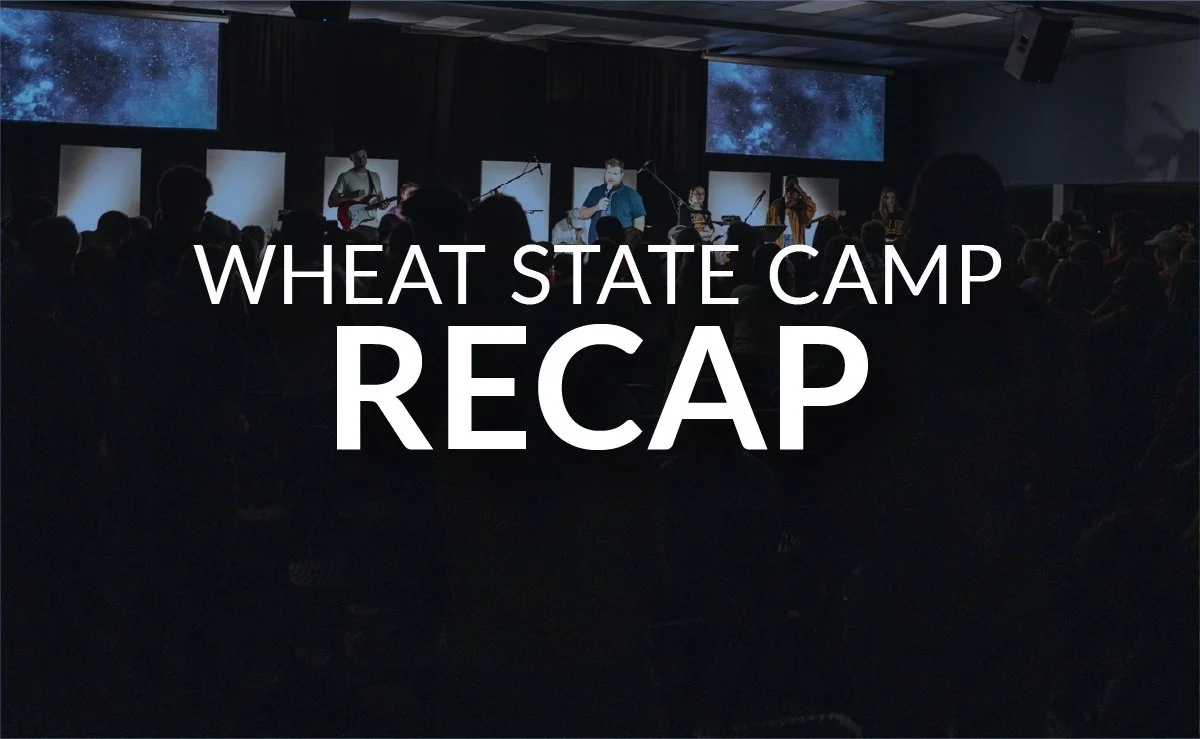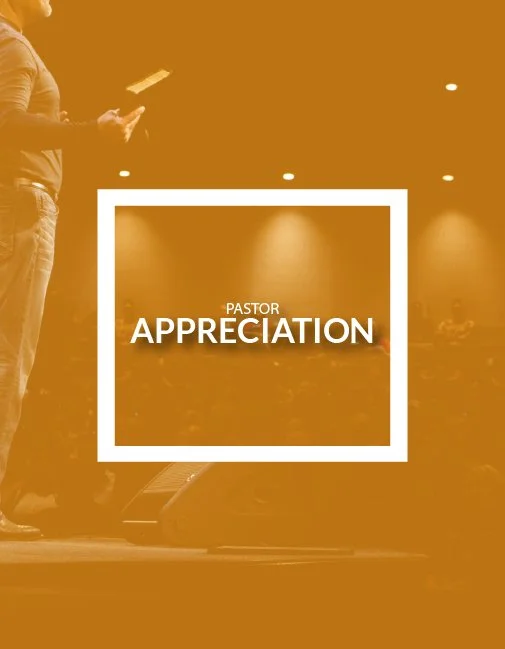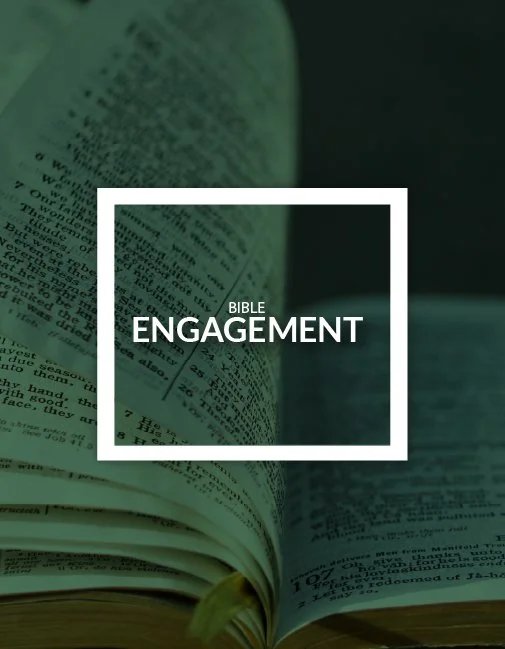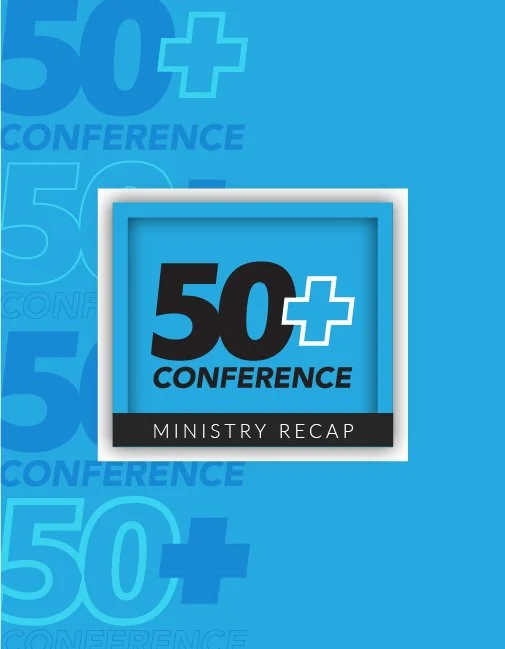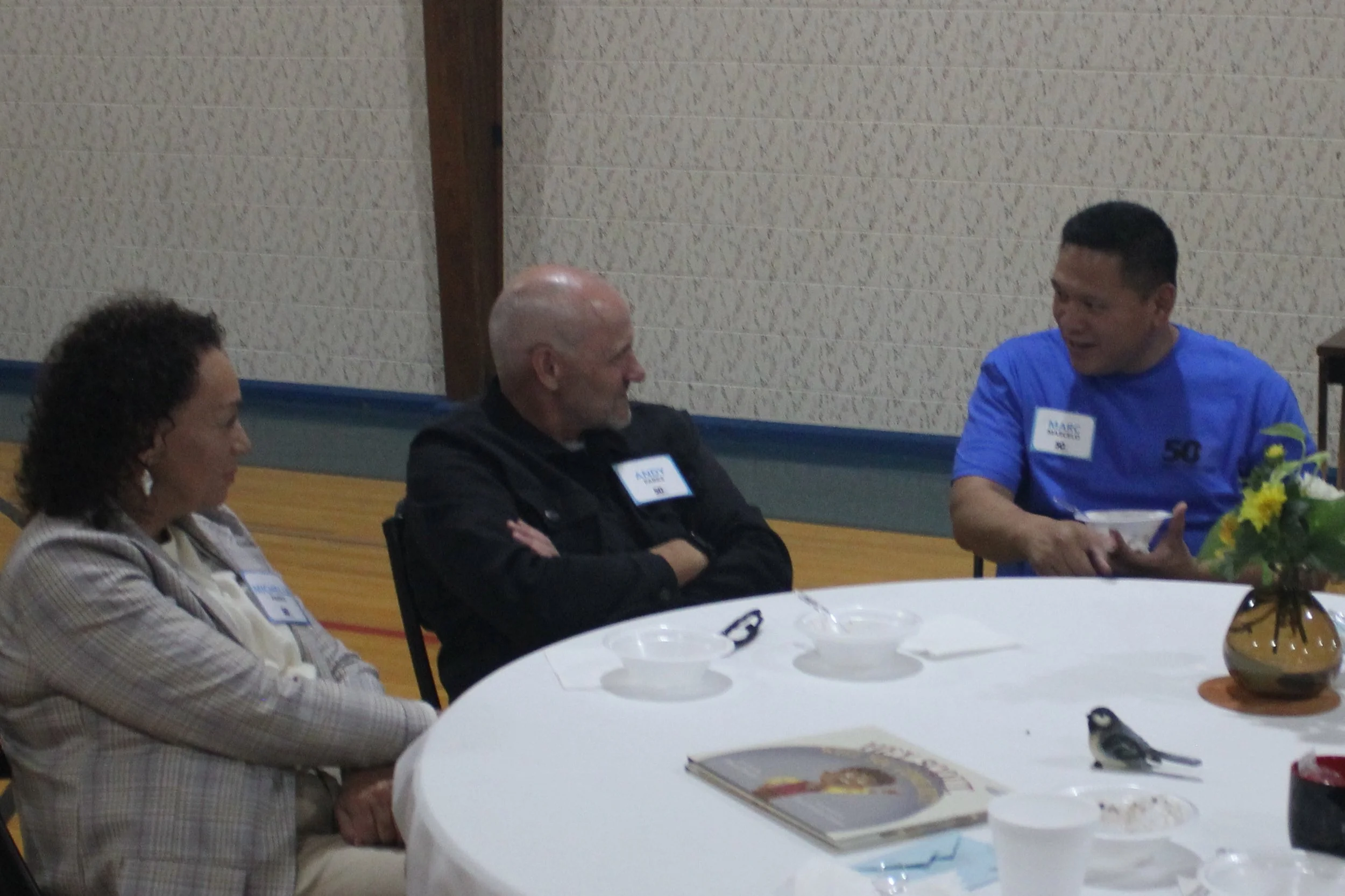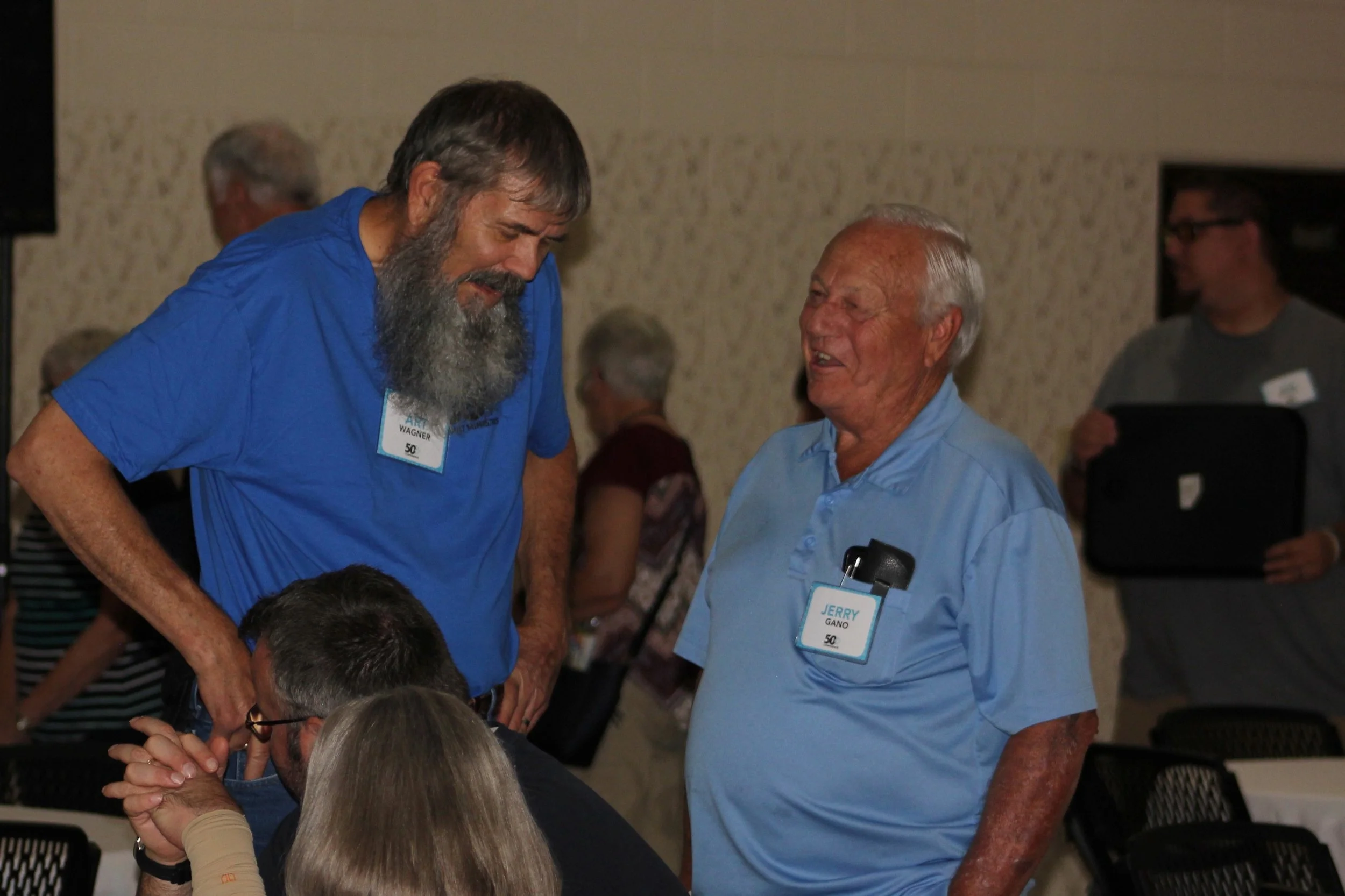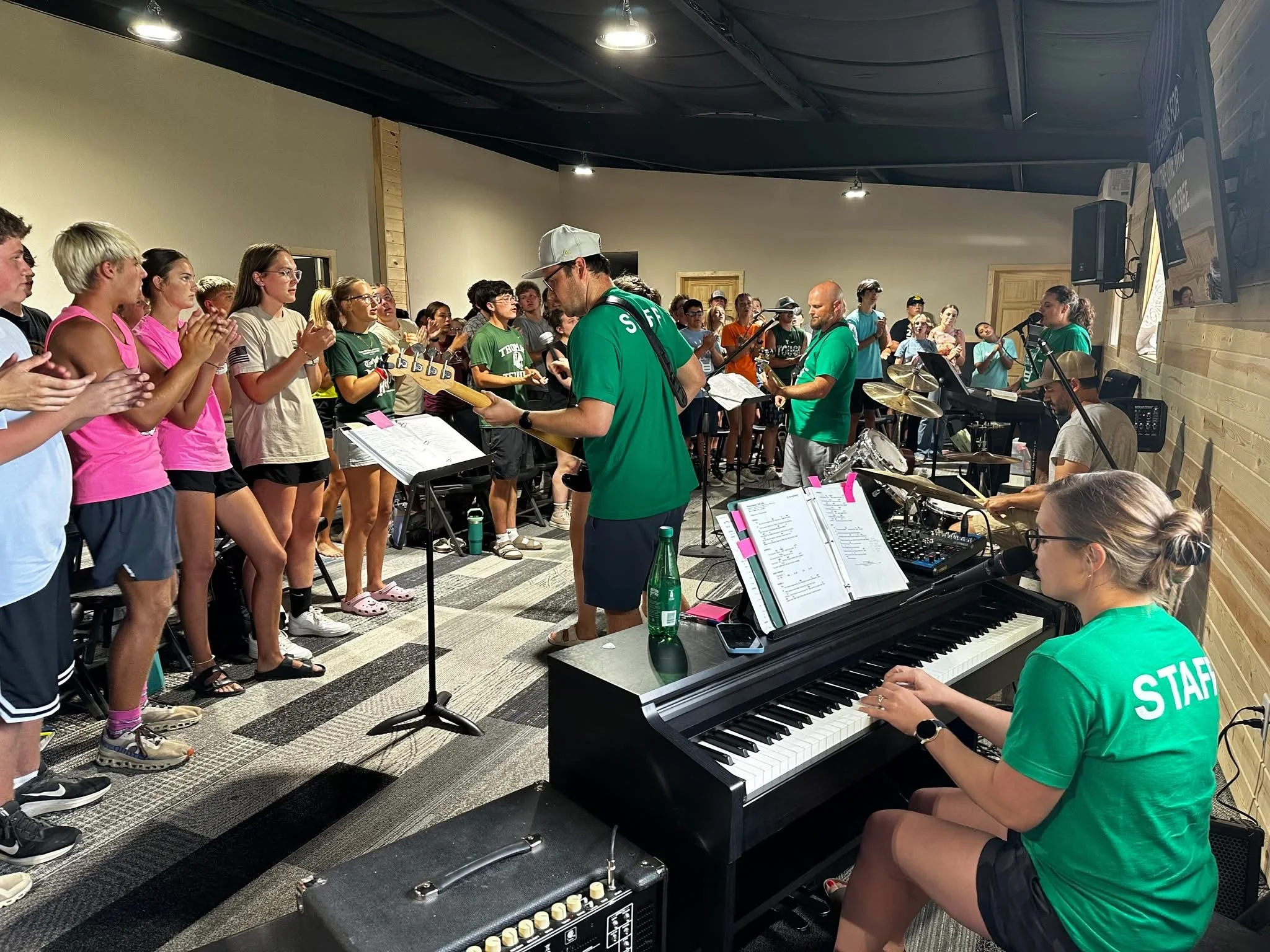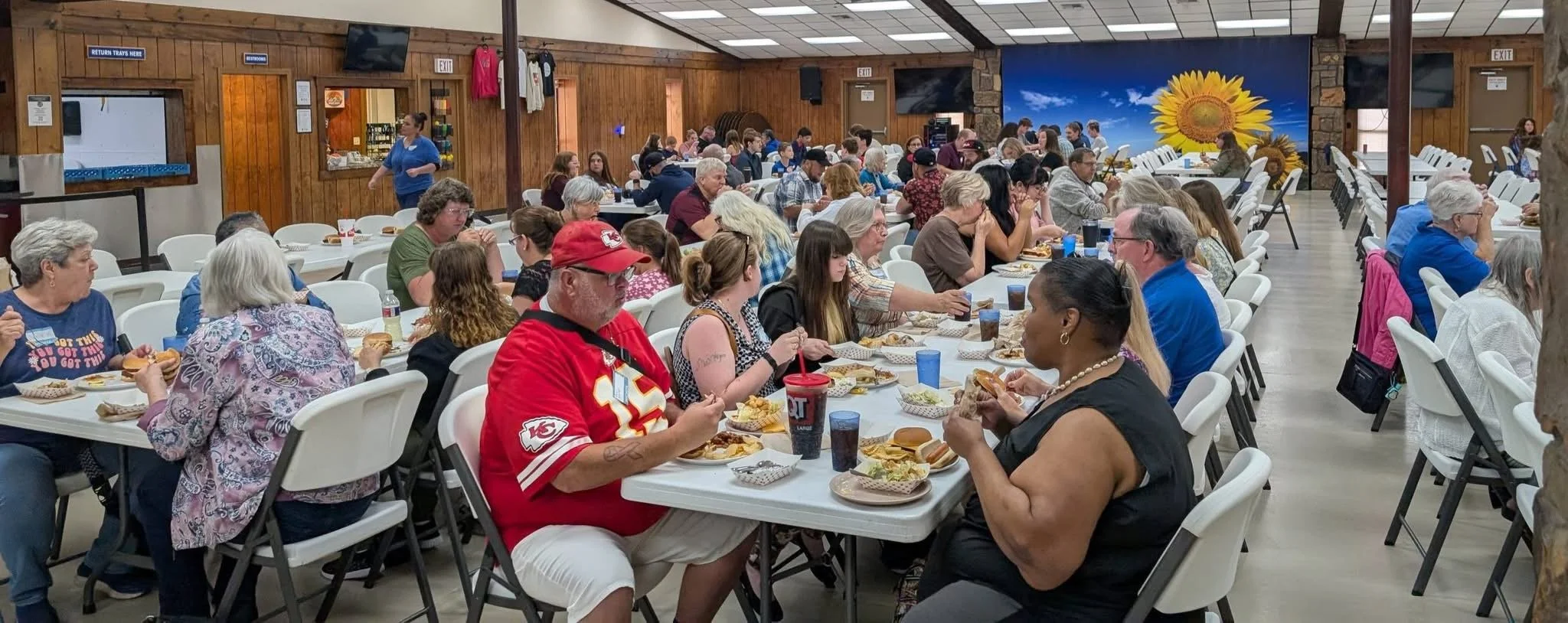blast
THE AGK BLAST
THE AGK BLAST
October ‘25 EDITION
Devo with
Pastor nathan
Serving with Kindness, Living with Influence
Hosea 11:4 says, “I led them with cords of human kindness, with ties of love.”
So often, people are led to Christ not first by sermons or Sunday services, but by the consistent love and kindness shown to them by believers. My question to our churches is this: Would your influence in your community cease if your Sunday services no longer happened?
As leaders and credential holders in Kansas, we must display a love and engagement with people that is more than a Sunday-only experience. The world is watching for proof that our faith is real. They want to see love in action.
My dad’s story of salvation illustrates this truth. His parents were backslidden and not following Jesus, raising a family apart from the Lord. Two faithful women would regularly stop at the gas station my grandparents owned. Their consistent kindness and genuine witness eventually led to the acceptance of an invitation to a Sunday night service at Tioga Assembly of God.
That evening, my father and grandmother attended—and both gave their lives to Christ. The following Sunday night, my grandfather and aunt attended the service, and they too surrendered their lives to Jesus. My dad’s life story was changed not through a random encounter, but through steady, compassionate engagement outside the church walls. Leader—play the long game. What can happen with a consistent investment of relationship into your community?
This kind of influence takes intentionality. Preparing to serve your community in the fall—or in any season—begins months in advance. Whether it’s helping seniors winterize their homes, distributing holiday food baskets, blessing school bus drivers, or caring for first responders, every act of love plants seeds of the gospel.
-
…one of my favorite outreaches was blessing our local bus drivers with high-quality socks and coffee gift cards. Last year, while visiting Family Church at the Baldwin City campus, I met a family member of one of those drivers who expressed deep appreciation for that simple act of kindness. Though he never attended our church, the seeds planted impacted his life and his family.
We also learned not to duplicate what others were already doing. When other churches began Easter outreaches or fall festivals, we adjusted our focus to new opportunities that better fit our heart and context. This eventually led us to become a Convoy of Hope distribution hub, to connect with college students across the street, and to serve first responders and community leaders in meaningful ways.
Building long-term trust with your community doesn’t happen overnight. At first, people may wonder why the church shows up. But consistent service creates credibility, and serving alongside people naturally builds relationships. Those relationships become the bridges over which the gospel travels.
I’ll never forget when the new college president asked our church to host a meal for incoming students. He envisioned a full pig roast—something I had never attempted! Within 15 minutes, men in our church were rallying around the idea, eager to serve. That first roast may not have been the best cooked meal in history, but it launched a 13-year tradition that bonded our church with the college community. The menu and methods changed over the years, but one thing remained: students knew there was a community of believers who genuinely cared for them.
This commitment isn’t just something of the past. In February of this year, as a presbytery board, we each wrote down names of people in our lives who do not yet know Christ—people we are personally investing in. For some, it was business owners they meet with. For others, it was people they see at the gym or cycling partners in the community. As leaders, we must model what we ask our churches to do: live with intentional kindness, consistency, and gospel witness outside the four walls of Sunday services.
Scripture shows us that good works and good news always go together. They are like two wings of an airplane—each incomplete without the other. As Jesus ministered, He both proclaimed the kingdom and demonstrated compassion (Matthew 4:23; Matthew 9:35; Luke 4:32–37). Good deeds pave the road over which the good news travels.
Here’s another encouragement from my experience: people will often give to missions and outreach long before they begin to tithe. Many are looking for ways to give where they believe their sacrifice will truly make a difference, or for opportunities where they can serve alongside others. When churches consistently model compassion, generosity, and outreach, it opens new doors for discipleship and spiritual growth—including the journey toward biblical stewardship.
That’s why I’m so thankful for opportunities like Convoy of Hope’s One Day to Feed the World. As we prepare to give in the month of November, this is a practical and powerful way for your church to model compassion, impact communities, and show your people that their giving makes a difference. Every gift helps meet physical needs while opening doors for the gospel.
Click HERE to donate.
So, AGK churches, let me encourage you: remain externally focused. Let the love and kindness of Christ flow through you in consistent, creative, and practical ways. Serve your neighbors, love your community, and share the gospel boldly. And as you do, you can be assured that Jesus has already gone before you, preparing the way.
“Let your light shine before men, that they may see your good deeds and praise your Father in heaven.”
—Matthew 5:16
-
Partner with schools: Care packages for bus drivers, teachers, or custodial staff.
Support families in need: Winter coat drive or holiday food baskets.
Bless first responders: Deliver meals, handwritten notes, or gift cards.
Engage seniors and widows: Organize teams to help winterize homes or tackle repairs.
Connect with students: Free meals, tutoring, or a welcome event for college freshmen.
Join what’s already happening: Strengthen local nonprofits instead of duplicating efforts.
-
Convoy of Hope (Assemblies of God) – convoyofhope.org/churches
Acts 2 Journey (AG Trust) – acts2journey.com
Church of the Highlands – Serve Day – resources.churchofthehighlands.com
Dream Center Network – dreamcenter.org
River Valley Network - rivervalleynetwork.org
-
The Church That Doesn’t Sleep by Matthew Barnett
The Externally Focused Church by Rick Rusaw & Eric Swanson
When Helping Hurts by Steve Corbett & Brian Fikkert
Missional Renaissance by Reggie McNeal
What Really Matters by Hal Donaldson
Pastor Appreciation- An Article for church boards
Pastor Appreciation Month is upon us. As a full-time pastor, I understand that it can be uncomfortable to lead your board and congregation to wholehearted participation in this important event.
Imagine walking onto your platform this Sunday and saying, “Today’s sermon is titled, 'Why You Should Honor and Bless Me.’” If that thought doesn’t make you cringe, we need to talk. :)
So allow me to speak on your behalf. As Assistant Superintendent, I am asking every lead pastor in the AGK to share this article with your board. Let them know I insisted that they read it!
-
Honoring and blessing the men and women who shepherd your flock is instructed in Scripture. Repeatedly.
Consider the following verses. All emphases are mine.
1 Timothy 5:17 ESV
Let the elders who rule well be considered WORTHY OF DOUBLE HONOR, especially those who labor in preaching and teaching.Galatians 6:6 ESV
Let the one who is taught the word SHARE ALL GOOD THINGS with the one who teaches.1 Thessalonians 5:12-13 ESV
We ask you, brothers, to RESPECT those who labor among you and are over you in the Lord and admonish you, and to ESTEEM THEM VERY HIGHLY IN LOVE because of their work. Be at peace among yourselves.Hebrews 13:17 ESV
Obey your leaders and submit to them, for they are keeping watch over your souls, as those who will have to give an account. LET THEM DO THIS WITH JOY and not with groaning, for that would be of no advantage to you. -
Look at that last Scripture again from Hebrews.
Hebrews 13:17b ESV
…Let them do this with joy and not with groaning, for that would be of no advantage to you.The flip side of this statement is that it IS advantageous to your church to help your pastor serve happily. The following is just a small sampling of the benefits for your church when your pastor serves with joy:
- A pastor who serves with joy will lead with vision and passion.
- A pastor who serves with joy will preach sermons oozing with hope and life.
- A pastor who serves with joy will catalyze a culture of joy for your congregation.
- A pastor who serves with joy will receive strength from the Lord to persevere through the hardships of pastoring (Nehemiah 8:10).
That last benefit is REAL and leads to the final reason your church should honor and bless your pastor.
-
Pastoring is demanding, complex, and emotionally challenging work. The expectation is often for professional-level performance without professional-level compensation or benefits.
Your pastor is expected to be an effective counselor, preacher, leader, and financier. In smaller church settings (the majority of our AGK churches), he or she functions as CEO, CFO, and COO simultaneously.
No wonder a Hartford Institute for Religion Research survey (Fall 2023) found that over 40% of clergy have seriously considered leaving their congregation since the onset of the COVID-19 pandemic in 2020. More than half have even considered quitting the ministry altogether.
Recently, I went to bed exhausted from the heavy responsibilities of pastoring. My body, mind, and emotions needed rest. My instinct was to turn my phone to silent mode for the night, but then I remembered several situations within my congregation that might need my support during the night. I made sure my ringer was on and set at maximum volume.
That is a small and simple example of the weight that comes with pastoring.
Please hear my heart, I am not organizing a pity party with this article. The calling of God into pastoral ministry comes at a high cost, but also brings amazing benefits straight from Heaven.
It just so happens that one of those benefits flows through the love, support, and encouragement of the congregation each pastor serves. I hope you are eager to cooperate fully with that design! If so, here are some ideas that may inspire you as you seek to show deep appreciation for your pastors.
Why Every Church Should Honor and Bless Their Pastors
(At least once a year)
Ideas for Showing Appreciation to Your Pastors.
-
This is the bare minimum I am asking you to do. Even if your church is able to pay a generous salary, a love offering in October can be a huge blessing to your pastor as Christmas and other end-of-the-year expenses approach.
-
Sometimes, pastors need to hear that their efforts are appreciated and bearing fruit. Cards from congregation members expressing specific testimonies of gratitude can breathe life into a weary minister’s soul.
-
Mark 6:31 ESV
And he said to them, “Come away by yourselves to a desolate place and rest a while.” For many were coming and going, and they had no leisure even to eat. -
This could be especially meaningful if you have only given a cost-of-living adjustment (COLA) for a while. A COLA raise should be the minimum you aim for.
-
Pastors’ kids often face pressures and expectations that are unfair. Individual gifts for each of them can communicate that their church loves them. Even if they don’t always behave perfectly. ;)
-
Rest is not just practical — it is a biblical principle woven into Creation itself. Just as Jesus called His disciples to come away and rest, a scheduled sabbatical provides the renewal a pastor’s soul needs. By investing in your pastor’s long-term health, you will promote strong, Spirit-filled leadership that will bless the congregation for years to come.
Whether your church has a long record of pouring on the honor and blessing during Pastor Appreciation month or you are just getting started, don’t let this year’s opportunity pass you by.
Bless, encourage, and honor your pastors and their families. By doing so, you will strengthen them and your church. Imagine the pleasure of Jesus when we show intentional love to His called shepherds! To that Chief Shepherd be the glory this month and forever!
Assistant Superintendent
Pastor Ryan Wheeler
Living Word Assembly, Chanute, KS
“Woven” Women’s Conference
Date: October 3-4, 2025
Location: Evangel Assembly of God,
Wichita, KS
Cost: $90
Conference Schedule
FRIDAY
12PM DOORS OPEN
1PM SESSION ONE
6PM DOORS RE-OPEN
7PM SESSION TWO
saturday
8AM DOORS RE-OPEN
9AM SESSION THREE
12PM DISMISSAL

Kid Con is a weekend of fun for kids (1st-6th grade) to experience Jesus and to understand that they are never too young to talk with God! Kids will have an opportunity to be discipled in a deeper understanding of what it means to pray, hear from God, and respond to Him.
Registration (Until September 30): $70
Registration at the door: $80
Bible Engagment Program Resource
Free interactive, age-appropriate curriculum for the whole church? Yes!
-
*Preschool Curriculum
Presents Bible stories in a way that sticks with preschoolers when they get home.
*Kids Curriculum
Instills foundational biblical principles and keeps kids engaged.
*Youth Small Group Resources
Help students take ownership of their faith with resources that help them engage with the Bible.
*Adult Small Group Resources
Build small group communities that can study the Bible and apply it to life—together!
Create your free account to get access to the curriculum that will help all ages engage with the Bible.
The Bible Engagement Project is on a mission to help you make disciples in your church by providing every church, regardless of size, budget, or location with resources that transform lives and help people engage with the Bible.
•Facebook: Facebook.com/BibleEngagementProject
•Instagram: Instagram.com/BibleEngagementProject
• “Built on the Bible” BarnaReport: BibleEngagementProject.com/Barna
•YouTube: https://www.youtube.com/channel/UCyDB986EOPReXSSukl0SR1Q
John 9:4 says, “As long as it is day, we must do the works of Him who sent me. Night is coming.” That urgency is the heartbeat of Yth Con, November 7–8 at Bethel Life Center. We’re praying for 1,500 students, leaders, and volunteers to gather, encounter Jesus, and carry His gospel back to every corner of Kansas. If not now, when? Let’s raise the spiritual temperature and believe for salvation, Spirit empowerment, generous hearts, and a resounding “YES” to God’s call.
-
…—the future of our giving and the future of our going. Across two catalytic days, we will worship passionately, hear compelling messages, and respond boldly to the voice of God. Students will be challenged to lift their eyes to what God can do in and through them in 2026 and beyond.
Our speaker lineup is stacked with voices who live the message. Letty Garcia, from our AG National Youth Team, will call us to salvation and bold, Spirit-filled obedience. Missionaries Mike and Sonja Trei will stir our faith with stories from Peru and a vision for taking the gospel to the ends of the earth through AIM trips and generosity. And Jerod Yancey, our NextGen (DYD) Director, will help us connect the moment to a movement—moving from inspiration to activation.
For the first time at Yth Con, we will also have a dedicated connection time for all students and leaders who are sensing the CALL from God into vocational ministry. Don’t miss the CALLED Lunch at 12:00 p.m. on Saturday—$10 per person, limited to the first 150 attendees. This focused, practical conversation is for students and adults who sense God leading them toward ministry or missions. Secure your spot early and take a next step of faith into your calling.
Friday kicks off with pre-service activities at 7:00 p.m. Saturday reignites at 9:00 a.m. with more pre-service activities, followed by lunch at noon (CALLED Lunch or on your own). We’ll ramp up again at 1:30 p.m. with pre-service activities, and we’ll dismiss at 3:00 p.m.—sent back to our cities and schools lit up on mission.
Bring a friend and come ready. Students: $45 Early Rate, $55 Regular Rate. Adults: $25 Early Rate, $35 Regular Rate. Pick up a Youth Con shirt for $15, and preorder a large pizza for $11. Every dollar we give and every step we take is an investment in the gospel advancing through the next generation.
What can you expect? A high-energy environment saturated with passionate prayer, powerful worship, clear gospel preaching, and catalytic commissioning moments. You’ll have time to connect with churches from across Kansas, meet missionaries, and discover practical next steps to serve in your church, school, and city. Bring your Bible, a notebook, a ready heart, and at least one friend who needs Jesus.
Group leaders, register early to lock in the best rates and plan your weekend so students can focus on what matters most—encountering Jesus. Oh ... and by the way ... we will be opening up "REQUESTS" for Summer Camp on Saturday, at Yth Con, so be thinking about which camp you will want to attend this year!
Kansas, this is our moment. Night is coming! Let’s gather, give, and go. Register your group, invite those who don’t yet know Jesus, and prepare to encounter the living God. Yth Con 2025 ... If not now, when?
Location:
Bethel Life Center, Wichita, KS
Registration Info:

World Missions Update
“… the most significant initiative in more than seven decades of ministry.”
Every generation of believers carries a sacred trust. From the first disciples on the shores of Galilee to the missionaries who crossed oceans centuries later, the call of Jesus has remained the same: “Go into all the world and preach the gospel to all creation” (Mark 16:15). This is not a suggestion. It is the heartbeat of God for the nations, and it is the responsibility of His Church to respond.
Today, in 2025, we stand at a defining moment in that mission. More than 8.2 billion people now inhabit the earth, yet over 42% remain unreached by the gospel. That number is not just a statistic — it represents billions of souls, families, and generations who are not calling on the name of Jesus as Lord and Savior. Within that massive percentage are 2,085 unengaged unreached people groups — more than 202 million men, women, and children who live without a single church, missionary, or known believer among them. They are not resistant. They are simply without access. Unless someone goes, they may never hear the hope of salvation.
This reality has stirred the heart of Assemblies of God World Missions (AGWM) to launch the most significant initiative in more than seven decades of ministry. At the 2025 General Council, AGWM Executive Director John Easter announced a bold vision that is both historic and deeply spiritual: to advance gospel access to the unengaged. “This is the largest initiative we have done in 72 years,” Easter declared, “because the need before us demands nothing less than our full obedience.”
This call is not just for missionaries, but for the entire Church. It is a summons for prayer, for intercession, for sacrificial giving, and for raising up a new generation willing to go where the gospel has never been preached. General Superintendent Doug Clay reminded the movement that this is not simply a strategic shift — it is a Spirit-led response. The Holy Spirit is already at work in hidden corners of the earth. He is stirring hearts, preparing soil, and opening doors. The question is whether God’s people will follow Him with faith and courage.
To answer this call, AGWM has set a vision to grow its missionary force from 2,569 to 4,000 by 2033. Every new worker represents not only another number on a chart, but the possibility of eternity changed for someone who has never heard the gospel. Each church planted, each partnership formed, and each life transformed is part of a greater story — a story of God’s relentless love reaching into the darkest and most forgotten places of the world.
This is more than a program or a campaign. It is a holy invitation. The Lord is asking His Church to rise up once again, to send its sons and daughters into the harvest fields, and to believe that the impossible is possible with Him. The task before us is great, but the promise of Jesus is greater: “This gospel of the kingdom will be preached in the whole world as a testimony to all nations, and then the end will come” (Matthew 24:14).
The only question left is this: how will we respond? Will we be satisfied with what we are currently doing or will we accept this God - sized challenge?
Pastor Andy Parks
AGK World Missions Director
Cross Point Church, Paola, KS
50+Ministires Conference Recap
What an unforgettable weekend we experienced at the AGK 50+ Adult Ministries Conference! From the very beginning, God’s presence filled the atmosphere and touched every heart. It was truly a time of renewal, encouragement, and fresh vision for the days ahead as people from all across Kansas came together in unity.
The conference opened with a welcome from Steve Bowman, AGK 50+ Adult Ministry Coordinator, who shared the heart of…
-
Helping churches minister to and mobilize adults 50+
Inspiring the next generation by passing on our spiritual legacy
Unifying efforts across AGK ministries for greater kingdom impact
Embracing the perspectives of four generations within the 50+ age group to create a multifaceted approach to ministry
-
…we enjoyed a delicious steak and turkey dinner that set the tone for a powerful evening. The Harvesters then led us into a moving time of worship, preparing our hearts for Pastor Andy Parks’ inspiring message. Pastor Andy reminded us that life beyond 50 is not about slowing down but about stepping boldly into fresh callings and new assignments from God. His challenge was clear: dream bigger, pray bolder, and believe that the best is yet to come. He also encouraged us to share our stories—not only with those who don’t yet know Jesus but also with the next generation who needs to hear of His faithfulness. The night ended with a joyful time of fellowship over an ice cream and popcorn bar, laughter, and plenty of door prizes.
Saturday began with an inspiring worship workshop video, Holy Roar by Chris Tomlin, which helped us realign our hearts to the true purpose of worship. Attendees then had the opportunity to choose from three excellent workshops:
Crystal Cauthon spoke on understanding generational differences and how they shape ministry.
Dan and Shani Parotti with Young Enough to Serve shared practical and powerful insights on engaging adults 50+ in meaningful ministry.
Marc Cauthon gave an encouraging update on missions, reminding us that God is still calling, still moving, and still sending workers into His harvest.
We concluded with another powerful word from Pastor Andy Parks, who sealed the truth in our hearts: God is not finished with us yet. He is calling us to remain fruitful, faithful, and full of joy in every season of life.
We left inspired, refreshed, and ready to live out the promise of Psalm 92:14:
“Even in old age they will still produce fruit; they will remain vital and green.” 🌿
We are excited about what God is doing in Kansas through adults over 50, and we look forward to seeing even greater things ahead
+MORE ARTICLES
Presbyter book review
“A Tale of Three Kings”
by Gene Edwards
Several years ago, I attended a pastors’ conference where the keynote speaker shifted part of his message to address the heartbreak of ministry. During that talk, he mentioned a book that I’ve since gone back to and read multiple times. The book is called “A Tale of Three Kings” by Gene Edwards and is a brief but deeply penetrating allegory that explores leadership, brokenness, and the heart of true servanthood. This book should be read and re-read.
First published in 1980, the book has endured as a staple for pastors, church leaders, and believers navigating seasons of conflict and authority in ministry. Through a retelling of the biblical lives of Saul, David, and Absalom, Edwards crafts a careful reflection of how leaders and non-leaders alike should respond to unjust treatment, spiritual authority, and personal ambition.
At its core, the book asks a timeless question:
-
respond when mistreated by other leaders—or when entrusted with power themselves? To answer, Edwards draws readers into the contrasting stories of three kings. Saul, the first king of Israel, embodies insecurity, jealousy, and tyranny. He is the “tormented king,” a man who clings to the throne and lashes out at threats—real or imagined.
Absalom, David’s son, is the “rebellious king,” driven by charm and self-promotion. His ambition leads to division, usurpation, and ultimately destruction. Between them stands David, the “broken king.” Though anointed by God, David spends years under Saul’s unjust rule, refusing to lift a hand against God’s chosen leader. Later, when confronted with Absalom’s rebellion, David does not cling to his throne but entrusts the outcome to God.
The brilliance of Edwards’ writing lies in its simplicity. The book is short, poetic, and almost theatrical in style—more like a script for a stage play than a traditional narrative. Sentences are brief, often no more than a line or two, with a rhythm that makes the reading feel reflective, even prayerful. This format allows the weight of his words to linger. Each chapter becomes a moment of contemplation rather than mere information.
For leaders who have been wounded by authority, Edwards offers comfort: you are not alone, and your suffering may be God’s tool for shaping your heart. David’s long exile under Saul is portrayed not as wasted years, but as the very means by which God formed a man after His own heart. In contrast, for those who wield power, the story serves as a sobering reminder: authority is not a right to be seized or clung to, but a trust given by God. The way one responds to both affliction and success reveals the true nature of the heart.
Interestingly enough, what makes “A Tale of Three Kings” enduring is not just its exploration of leadership but its call to surrender. Edwards insists that brokenness—not ambition, charisma, or skill—is the mark of a leader God can truly use. David emerges as the model, not because he was flawless, but because he consistently entrusted justice and vindication to God rather than taking it into his own hands. In today’s world of fractured relationships and leadership scandals, this message resonates powerfully.
That said, the book’s brevity may leave some readers wishing for more exposition. Edwards does not provide detailed biblical commentary or theological arguments; instead, he paints with broad, allegorical strokes. Some may find the lack of context limiting, especially those unfamiliar with the biblical stories. Yet for many, this sparseness is exactly what makes the book effective—it strips away excess and forces readers to wrestle with the heart issues beneath the narratives.
In less than 100 pages, A Tale of Three Kings manages to be convicting, healing, and unsettling all at once. It does not promise easy answers.
Instead, it invites readers into the mystery of God’s refining process, where wounds can become the pathway to wisdom and humility. For anyone struggling with betrayal, authority, or ambition in the church—or simply seeking to lead with a heart shaped by God—this little book offers a powerful, enduring word: true kings are shaped in the crucible of brokenness.
Pastor Tony Lantz
Life Church, Emporia, KS
Wheat STate Retreat Center Summer Recap
The summer of 2025 at Wheat State Retreat Center was amazing! Hosting more than 30 events and groups between May and August, it was a summer focused on changing lives and, in turn, changing the world. Wheat State had the privilege of serving five AGK Ministry Network Camps that reported many lives dedicated to Jesus, baptisms in the Holy Spirit, and callings to ministry! We also welcomed several other kids' camps, youth retreats, a men’s advancement weekend, special needs camps for youth and adults, and some day events, as well as a few college sports team retreats.
-
…, power outages, and lots of rain. It came with some fun group experiences like petting zoos, foam parties, glow in the dark capture the flag, and cardboard boat races. We had some baptisms in the pond, lots of ice cream and nachos served from the food tent, and some hot days spent out on the game fields.
Wheat State was honored to have more than 90 staff, cohort, and volunteers working together to make the 2025 summer season one of our best. We could not make Wheat State such an easy place to encounter God without the countless hours of the many who serve our guests through cooking food, lifeguarding, cleaning restrooms, setting up chairs and tables, taking out trash, filling water coolers, leading our students, running paintball games, creating schedules and planning, lighting bonfires, speaking into and leading our student staff, and mowing lawns.
Thank you, Kansas, for praying, serving, and sending your students and leaders to Wheat State!
+MORE ARTICLES


